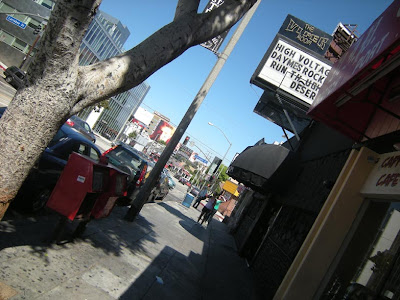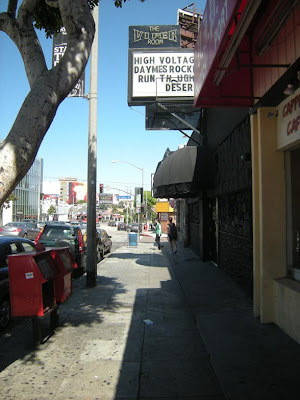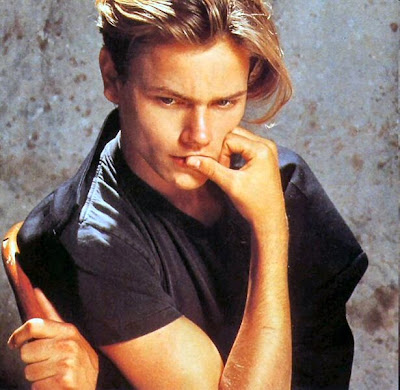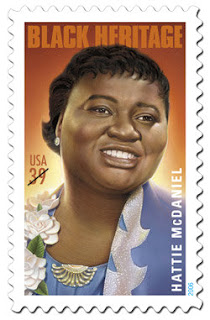Early life
Phoenix was born River Jude Bottom in a two-room log cabin in Metolius, Oregon,[2] on August 23, 1970, the oldest child of Arlyn Sharon Dunetz and John Lee Bottom. His parents named their first child after the river of life from novel Siddhartha.[2]
In an interview with People, River Phoenix described his parents as "hippieish".[2] His mother was born in The Bronx, New York, to Jewish parents from Hungary and Russia.[3][4][5][6] His father was a lapsed Catholic from Fontana, California.[3] In 1968, Phoenix's mother left her family in New York and moved to California, meeting Phoenix's father while hitchhiking. They married in June 1969 and joined the religious cult the Children of God, working as missionaries and fruit pickers in Venezuela.[2] Phoenix was the oldest of five and had four younger siblings: one brother, Joaquin, and three sisters, Rain, Summer, and Liberty. He also had an older half-sister from his father's previous relationship, Jodene (who later changed her name to Trust).
In an interview with Details magazine in November 1991, Phoenix stated that he lost his virginity at age four.[7][2] The magazine quotes him as saying "But I've blocked it out ... I was completely celibate from 10 to 14."[7] His representatives reportedly pressured him to later recant the comment, claiming it was "a joke."
In March 1994, Esquire magazine quoted River as speaking angrily of the Children of God cult: "They're disgusting ... they're ruining people's lives."[8] After the family left the cult and returned to the United States in 1977, they officially adopted the surname "Phoenix" on April 2, 1979, to reflect their rebirth to a new life, just like the mythical sacred firebird Phoenix arising from the ashes.
In 1977, the family returned to United States, and lived with Phoenix's maternal grandparents in Florida before moving to California and eventually settling back in Micanopy near Gainesville, Florida, in 1987.[2]
Phoenix often made different and conflicting accounts of his life to reporters. He told reporters "I have lied and changed stories and contradicted myself left and right, so at the end of the year you could read five different articles and say 'This guy is schizophrenic.'"[9]
Career
Phoenix pursued a career in show business, encouraged by his parents. He had significant juvenile roles in Joe Dante's Explorers (1985); Rob Reiner's coming of age picture Stand By Me (1986) which first brought Phoenix to public prominence; Peter Weir's The Mosquito Coast (1986), where Phoenix played the son of Harrison Ford's character; A Night in the Life of Jimmy Reardon (1988); and Little Nikita (1988) with Sidney Poitier.
In 1989, at the age of 18, Phoenix was nominated for an Oscar for Best Supporting Actor (as well as for a Golden Globe) and received the Best Supporting Actor honor from the National Board of Review for his role in Sidney Lumet's Running on Empty (1988).
At the suggestion of Harrison Ford, Phoenix portrayed the teenage Indiana Jones in Indiana Jones and the Last Crusade (1989) and was offered the role of the young Indiana Jones in the TV series, which he turned down. Phoenix met actor Keanu Reeves while Reeves was filming Parenthood with Phoenix's brother, Joaquin. River later went on to star opposite Reeves (along with Kevin Kline, Tracey Ullman and Joan Plowright) in 1990's I Love You to Death and again in Gus Van Sant's avant-garde film My Own Private Idaho. For his role in My Own Private Idaho, Phoenix won Best Actor honors at the Venice Film Festival, the National Society of Film Critics and the Independent Spirit Awards. The film and its success solidified Phoenix's image as an actor with edgy, leading man potential. At a press screening for My Own Private Idaho at the New York Film Festival Phoenix correctly predicted a large number of gay-themed films were "on the horizon."[10] (His friendship with Reeves and Van Sant continued until his death). Just prior to My Own Private Idaho, he filmed an acclaimed independent picture called Dogfight co-starring Lili Taylor and directed by Nancy Savoca, in which Phoenix portrayed a young U.S. Marine on the night prior to his being shipped off to Vietnam in November 1963.
After losing out on the Brad Pitt role in Robert Redford's film A River Runs Through It, Phoenix teamed up with Redford and again with Sidney Poitier for the conspiracy/espionage thriller Sneakers (1992). He then appeared in Peter Bogdanovich's country music-themed film, The Thing Called Love (1993); it was his last completed picture before his death. Phoenix and co-star in the film, Samantha Mathis, became an item in real life.
“It's not about career. It's about believing in something, it's about prosperity. And it's about caring and empathizing and wanting to create the best, the most true to life, the most real. ”
After his death in 1993, his last picture, Sam Shepard's art-house, ghost western Silent Tongue (1994), was released; it had been filmed prior to The Thing Called Love. Phoenix was still working on George Sluizer's post-apocalyptic Dark Blood which was three weeks from completion at the time of his death. 90% completed, the film was never released, as Phoenix's death made it impossible for the filmmakers to film several key scenes. Director George Sluizer now owns the material and has been reported to be considering releasing some footage material about Phoenix embedded in a documentary on River's life.
Phoenix was being considered for the role of Jim Carroll, the drug addicted teen in the 1995 drama The Basketball Diaries and Arthur Rimbaud in Total Eclipse. After his death, Leonardo DiCaprio was cast in both roles. Author Anne Rice had originally wanted Phoenix cast in the role of Lestat in the film version of Interview with the Vampire and Phoenix became attached to the project; however, when the producer wanted a more consistently bankable actor for the part, Tom Cruise was hired (against Rice's initial outrage). Phoenix remained with the picture and was to appear as the interviewer, Daniel Molloy, a role that ultimately ended up going to Christian Slater following Phoenix's death. The film was dedicated to him and Slater donated his salary from the film to Phoenix's favorite charities.
Generally regarded by critics at the time as the most promising young actor on the cusp of the '80s and '90s, River and younger brother Joaquin would later go on to become the first brothers in Hollywood history to be nominated for an Oscar in the acting categories.
Music
“I've been wanting to go into music ever since I can remember. I mean even before I became an actor. I just thought it would be a tough field to break into, so I became an actor instead.”
Although Phoenix's movie career was generating most of the income for his family, it has been stated by close friends and relatives that his true passion was music. Phoenix was a singer, song writer and an accomplished guitarist. He had begun teaching himself guitar at the age of five and had stated in an interview for E! in 1988 that his family's move to Los Angeles when he was nine was made so that he and his sister "..could become recording artists. I fell into commercials for financial reasons and acting became an attractive concept..." Prior to securing an acting agent, Phoenix and his siblings had attempted to forge a career in music by playing cover songs on the streets of the Westwood district of LA; often being moved along by police because of the gathering crowds who obstructed the pavement.
Whilst working on A Night in the Life of Jimmy Reardon in 1986 Phoenix had written and recorded a song, "Heart to Get," specifically for the end credits of the movie. 20th Century Fox cut it from the completed film, but director William Richert put it back into place for his director's cut some years later. It was during filming that Phoenix met Chris Blackwell of Island Records, this meeting would later secure Phoenix a 2 year development deal with the label. Phoenix disliked the idea of being a solo artist and relished collaboration and so focused on putting together a band. Aleka's Attic were formed in 1987 and the line up included his sister Rain. Phoenix was committed to gaining credibility by his own merit and so he maintained that the band would not use his name when securing performances that were not benefits for charitable organizations. Phoenix's first release was 'Across the Way,' co-written with bandmate Josh McKay, which was released in 1989 on a benefit album for PETA entitled "Tame Yourself." In 1991 River wrote and recorded a spoken word piece called "Curi Curi" for Milton Nascimento's album TXAI. Also in 1991 the Aleka's Attic track "Too Many Colors" was lent to the soundtrack of Gus Van Sant's My Own Private Idaho a film which included Phoenix in a starring role.
Due to Phoenix having to take numerous breaks to fulfill movie obligations the two year deal was frozen repeatedly and, subsequently, it was over four years before the final demos were completed. With the refusal to compromise his music to gear it towards a more 'mainstream' audience the deal eventually fell through. Around this time, Phoenix's friend John Frusciante had left his band Red Hot Chili Peppers and, with Phoenix spending more and more time in LA, the two began collaborating frequently; recording material on 4 and 8-track recorders in Frusciante's home.
In 1992, Phoenix worked with producer and friend T-Bone Burnett on some songs for his final completed film The Thing Called Love. Phoenix performed all his character's songs himself and wrote the song "Lone Star State of Mine" especially for the movie. In 1996, a second Aleka's Attic track was released, "Note to a Friend" was included on a PETA compilation album In Defense of Animals Volume II. The track included friend Flea of Red Hot Chili Peppers on bass. Two tracks collaborated on with John Frusciante were intended for release on his first solo album Niandre Lades and usually just a t-shirt(1994) but were pulled by request of the Phoenix family. They were released instead on Frusciante's second solo record, Smile from the streets you hold (1997) under different titles, "Height Down" (originally titled 'Soul Removal') and "Well, I've Been" (originally titled 'bought her soul').
Phoenix, along with friend Dan Aykroyd and other musically inclined celebrities, was an investor in the original House of Blues in Cambridge, Massachusetts which opened its doors to the public after serving a group of homeless people on Thanksgiving Day 1992.[11] Phoenix was also close friends with Michael Stipe of the band R.E.M.. At the time of his death Phoenix had been working on an album with Aleka's Attic (then consisting of a different line-up). The album, although close to completion, was shelved after Phoenix's death due to two of the musicians declining to sign artistic releases.
Activism
“If I have some celebrity, I hope I can use it to make a difference. The true social reward is that I can speak my mind and share my thoughts about the environment and civilisation itself. There's so much shit happening with people who are exploiting their positions and creating a lot of negativity.”
Phoenix was a dedicated animal rights, environmental and political activist. He was a prominent spokesperson for PETA and won their Humanitarian award in 1990 for his fund-raising efforts.[12] Also in 1990, for Earth Day, Phoenix wrote an environmental awareness essay targeted at his young fanbase, which was printed in Seventeen magazine. He financially aided a slew of environmental and humanitarian organizations and bought 800 acres (3.2 km2) of endangered rainforest in Costa Rica.
As well as comparing and giving speeches at rallies for various groups, he and his band often played environmental benefits for well known charities and also that of local ones around Gainesville, Florida. Phoenix was renowned for using his power within the media to voice his beliefs and opinions on issues he felt important, with his fanclub newsletters excluding the typical teen idol fodder to include information about issues such as the arms race, nuclear testing and climate change.
Downfall
“For a long time, I've said the opposite of what I really thought. In interviews, I've also played characters that I wasn't. I've lied and often contradicted myself to dumbfound people. It's all over now, because I have nothing left to hide. Eventually, I'm quite an ordinary person.”
Prior to his death, River Phoenix's image — one he bemoaned in interviews — had been squeaky-clean, due in part to the public discussion of his various social, political, humanitarian and dietary interests not always popular in the '80s; as a result, his death elicited a vast amount of coverage from the media at the time. To this day, most family and friends remain silent on the subject.
Shortly before his 1993 demise, Phoenix, whose drug habits were still unknown to the public, said in an interview, "...drugs aren't just done by bad guys and sleaze-bags; it's a universal disease."[13][14]
Phoenix once said in an interview, "I wish sometimes that I wasn't as conscious as I am."[15]
 Death
DeathOn October 31, 1993, Phoenix collapsed from a drug overdose of heroin and cocaine (known as a speedball) outside the Viper Room, a Hollywood night club partially owned, at the time, by actor Johnny Depp. Phoenix had returned to Los Angeles early that week from Utah to complete the three weeks of interior shots left on his last (and, uncompleted) project Dark Blood. His younger sister Rain and brother Joaquin had flown out from Florida to join him at his hotel. River's girlfriend Samantha Mathis had also come to meet him, and all would be present at the scene of River's death.
On the evening of October 30, River was to perform onstage with his close friend Michael "Flea" Balzary from the Red Hot Chili Peppers. At some point in the evening Phoenix went to the bathroom to take drugs with various friends and dealers.[16] It is reported that an acquaintance offered him some Persian Brown (a powerful form of methamphetamine mixed with opiates, which is then snorted) and soon after consuming the drug he became ill.[16]
Upon leaving The Viper Room, River Phoenix collapsed onto the sidewalk and began convulsing for eight minutes. Joaquin dialed 911; during the call Joaquin was unable to determine whether River was breathing. River had, in fact, already stopped breathing. Rain proceeded to give mouth-to-mouth resuscitation. During the episode, Johnny Depp and his band P (featuring Flea and Phoenix's friend Gibby Haynes of the Butthole Surfers) were onstage. According to Haynes the band was in the middle of their song, "Michael Stipe" (which includes the line "but we didnt have a part, not a piece of our heart, not Michael, River Phoenix or Flea or me."), while Phoenix was outside the venue having seizures on the sidewalk.[17] When the news filtered through the club, Flea left the stage and rushed outside. Paramedics had arrived on the scene and found Phoenix in asystole (flatline), when they administered drugs in an attempt to restart his heart. He was rushed to the Cedars-Sinai Medical Center, accompanied by Flea, via an ambulance. Further attempts to resuscitate Phoenix (including the insertion of a pacemaker) were unsuccessful. He was pronounced dead at 1:51 a.m. PST on the morning of October 31, 1993.[18] The following day the club became a make-shift shrine with fans and mourners leaving flowers, pictures and candles on the sidewalk and graffiti messages on the walls of the venue. A sign was placed in the window that read, "With much respect and love to River and his family, The Viper Room is temporarily closed. Our heartfelt condolences to all his family, friends and loved ones. He will be missed". The club remained closed for a week. Johnny Depp continued to close the club every year on October 31 until selling his share in 2004.
A local paparazzo chose not to photograph Phoenix dying on the street, however, the day before his cremation in Florida, a reporter broke into the funeral home and took a picture of Phoenix resting in his casket; this picture was later to be sold to the tabloids for $1,000,000. It has now been published by the National Enquirer three times since the initial publishing in 1993.
References in popular culture
River Phoenix first gained references in music with Brazilian singer Milton Nascimento writing the song "River Phoenix: Letter to a Young Actor" about him after having seen Phoenix in The Mosquito Coast (1986). The song appears on the 1989 release Miltons. Phoenix's friends, the Red Hot Chili Peppers, wrote a few lines for him in the song "Give It Away" from the 1991 album Blood Sugar Sex Magik: "There's a River born to be a giver, keep you warm won't let you shiver, his heart is never gonna wither..."
Phoenix has been the subject of numerous tributes in song and other media. The band R.E.M. dedicated their album Monster to Phoenix, and their song "E-Bow the Letter" from 1996's New Adventures in Hi-Fi is said to have been written from a letter Michael Stipe wrote to Phoenix but never sent because of the actor's death. Musician Sam Phillips has the dedication "For River" on her album Martinis and Bikinis. Again, Red Hot Chili Peppers, paid tribute with the song "Transcending" on 1995's One Hot Minute being written about him. Other songs inspired by Phoenix include Dana Lyons' "Song For River Phoenix (If I Had Known)," Grant Lee Buffalo's "Halloween," Natalie Merchant's "River" for her 1995 album Tigerlily, Ellis Paul's song "River," found on his 1994 release Stories,[19] Rufus Wainwright's "Matinee Idol", Nada Surf's "River Phoenix" and Stereophonics's "Chris Chambers." In her 1996 album Woman & A Man, Belinda Carlisle referenced River in the song "California". The song opens and closes with the line "I remember I was in a tanning salon, when I heard that River Phoenix was gone." In Jay-Z's album, Kingdom Come, the lyrics of "Hollywood" list him as one of the many fatalities of the pressures of Hollywood. New York band Japanther featured a song on their album Skuffed up my Huffy (2008) entitled "River Phoenix," which is about certain events in his life and delivers the chorus "River Phoenix didn't mean it". In the song "The Viper Room," Wesley Willis takes an abrupt turn from an otherwise glowing account of the club by noting Phoenix's death, stating that he "...collapsed and died like a Doberman." UK indie-singer/rapper TRIP (aka Alex Child) also recorded a song entitled River Phoenix in 2009, about the night that he died. The song "Jude' from ambient musician Hypnic Jerk's album "Martorell" is a tribute to Phoenix and contains sampled audio from Phoenix's performance in My Own Private Idaho. Hannah Marcus recorded a song titled "River Phoenix," with lyrics about his death, on her 1998 album Faith Burns.
Gus Van Sant, with whom Phoenix worked in the film My Own Private Idaho, dedicated his 1994 movie Even Cowgirls Get The Blues as well as his 1998 novel Pink to him. The film Phoenix was due to start shooting shortly after his death, Interview With The Vampire, features the dedication "In memory of River Phoenix, 1970-1993" at the end of the closing credits. Experimental Santa Cruz filmmaker Cam Archer also produced a documentary called Drowning River Phoenix as part of his USA Fame series.
During performances on November 13[20] and November 15, 1993[21] February 12, 1994,[22] and one of Nirvana's last USA shows in Seattle on January 7, 1994,[23] Kurt Cobain of Nirvana dedicated the song "Jesus Don't Want Me For a Sunbeam" to Phoenix (among other celebrities who died young), just a few months before Cobain's death. Tom Petty dedicated "Ballad of Easy Rider" to Phoenix when he played in his and Phoenix's hometown of Gainesville, Florida in November 1993.
The British band Manic Street Preachers mentions River in their song "Ifwhiteamericatoldthetruthforonedayitsworldwouldfallapart" (from the album The Holy Bible, 1994) in the following line:"...I'm thinking right now of Hollywood tragedy; big mac; smack; Phoenix.R; please smile y'all..."
Phoenix was the subject of a controversial song by Australian group TISM. Titled "(He'll Never Be An) Ol' Man River" the single originally featured a mock-up of River Phoenix' tombstone as its cover art in 1995. The chorus features the line, "I'm on the drug that killed River Phoenix."
On the song "Love Me, Hate Me" by rapper Ja Rule, he numerates different ways he could die as a celebrity, and one of the lyrics says "I might OD in a club off drugs like River Phoenix."
In the 1997 musical, The Fix, Phoenix is alluded to in the song "Mistress of Deception" in the lines, "Hot young actor died last night at an L.A. club./ecstasy and booze/and too much nyquil./had the sweetest face,/warm and shy and innocent; sexy in that careless kinda way./the newsman said his heart just stopped like that...."
The scene of River Phoenix's death merits several mentions in William Gibson's book Spook Country.
A lesser known reference to River Phoenix was Final Fantasty VIII's main protagonist Squall Leonhart. Tetsuya Nomura, the lead character designer for the game, stated he modelled Squall on River's visage during development, and even gave Squall the same birthdate.[24]
The Family Guy episode Three Kings, which was parodying Rob Reiner's Stand By Me ended in a synopsis of what the actors who originally played the characters in the movie went on to do. When he gets to Quagmire, who was parodying the character who was originally played by Phoenix, the narrator states, "Quag grew up to become a famous Hollywood actor. Unfortunately, about a week ago, he took an overdose of designer drugs at the Viper Room. He died, on the curb outside. And now we are left with a harelipped reminder of what might have been." A picture of Joaquin Phoenix, River's brother, fills the screen, accompanied by a Benny Hill-style trumpet sound. After the commercial break, Peter's first line is, "Joaquin Phoenix, if you are still watching, you're a good sport, and a trooper. And you passed our test. And you can be our friend." On the controversial episode, "I Dream of Jesus," Jesus says he raised Phoenix from the dead, only to have him overdose again in front of the Viper Room.
In 2004 Phoenix was voted #64 greatest movie star of all time in a poll by channel 4 television in the UK. The poll was made up wholly of votes from prominent figures of the acting and directing communities.
Phoenix's life and death has been the subject of an E! True Hollywood Story, an A&E Biography and an episode of Final 24, which contains a dramatic reconstruction of his final hours and death.*
References
1.^ Remembering 1993 Gary Kirkland Gainesville Sun - December 26, 1993
2.^ River's Untimely Death from People (November 15, 1993)
3.^ JewishJournal.com
4.^ Summer Phoenix: articles (part 1)
5.^ FOXNews.com - 'Walk the Line' Star Won't Campaign for Oscar - Celebrity Gossip Entertainment News Arts And Entertainment
6.^ Ten American showbiz celebrities of Russian descent - Pravda.Ru
7.^ Details, November, 1991[1]
8.^ Esquire magazine, March, 1994
9.^ Gone Too Soon. People. 2007. 37.
10.^ Esquire magazine, March, 1994
11.^ [2]
12.^ http://www.buzzle.com/articles/biography-of-river-jude-phoenix.html
13.^ People Magazine November 1993
14.^ Chatter: People.com
15.^ Catherine Elsworth. "Ledger death recalls River Phoenix". Daily Telegraph. http://blogs.telegraph.co.uk/foreign/catherineelsworth/jan08/ledgerdeathrecallsriverphonenix.htm. Retrieved 2008-01-29.
16.^ "The Untimely Death of River Phoenix". Reel Reviews article. http://www.franksreelreviews.com/shorttakes/phoenix.htm. Retrieved 2007-04-24.
17.^ Aaron, Charles. "They Came from Hollywood", Spin, 30 July 2007.
18.^ Weinraub, Bernard (1993-11-02). "Death of River Phoenix Jolts the Movie Industry". New York Times. http://query.nytimes.com/gst/fullpage.html?res=9F0CE4DC153DF931A35752C1A965958260. Retrieved 2008-06-07.
19.^ Ellis Paul website. Lyrics and audio to "River" from the album Stories. Retrieved 3 September 2007.
20.^ LIVE NIRVANA TOUR HISTORY: 11/13/93 - Bender Arena, American University, Washington, DC, US
21.^ LIVE NIRVANA TOUR HISTORY: 11/15/93 - Roseland Ballroom, New York, NY, US
22.^ LIVE NIRVANA TOUR HISTORY: 02/12/94 - Zénith Omega, Toulon, FR
23.^ LIVE NIRVANA TOUR HISTORY: 01/07/94 - Seattle Center Arena, Seattle, WA, US
24.^ Staff (2000-09-21). "The Bouncer Team Talks About Its Mysterious Game". IGN. http://ps2.ign.com/articles/085/085275p1.html. Retrieved 2009-06-24.
Further reading
Glatt, John. Lost in Hollywood: The Fast Times and Short Life of River Phoenix. ISBN 1-55611-440-0.
Furek, Maxim W.. The Death Proclamation of Generation X: A Self-Fulfilling Prophesy of Goth, Grunge and Heroin. ISBN 978-0-595-46319-0.
Lawrence, Barry C.. In Search of River Phoenix: the Truth Behind the Myth. ISBN 0-9672491-9-8.
Robb, Brian J.. River Phoenix: a short life. ISBN 0-06-095132-X.














.jpg)
.jpg)
.jpg)















